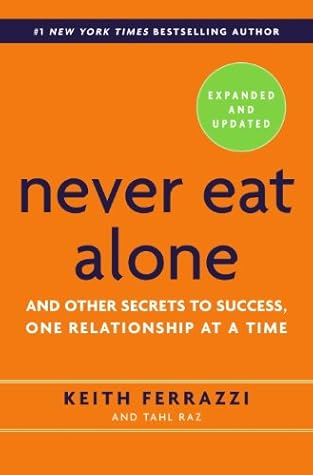More on this book
Community
Kindle Notes & Highlights
Read between
February 5 - October 1, 2018
In telling a gripping story, the Dalai Lama understands that the message must be both simple and universal.
The most gripping stories are those concerning identity—who we are, where we’ve come from, and where we’re going. They
One thing he does is use facts and historical examples within his stories to stoke our passions.
As a marketing professional, I’m keenly aware that perception drives reality and that we are all, in some sense, brands.
I know how all my choices—what I wear, my conversational style, my hobbies—fashion a distinctive identity.
Your content—defined by both your expertise and your unique humanity, aka GVAC (generosity, vulnerability, accountability, candor)—will become the guiding star of your brand, helping to integrate all your connecting efforts around a uniform and powerful mission.
Good personal brands do three highly significant things for your network of contacts: They provide a credible, distinctive, and trustworthy identity.
They project a compellin...
This highlight has been truncated due to consecutive passage length restrictions.
“Be the CEO of your own life. Raise hell. Let the chips fall where they may.
Every job I’ve ever had, I’ve made an effort to brand myself as an innovator, a thinker, a salesman, and someone who could get stuff done.
By making the effort, you can break the glass ceiling by expanding people’s view of your capability.
To become a brand, you’ve got to become relentlessly focused on what you do that adds value.
You can’t do meaningful work that makes a difference unless you’re devoted to learning, growing, and stretching your skills.
Your PBM comes from your content/unique value proposition, as we discussed in the last chapter, and a process of self-evaluation.
What do you want people to think when they hear or read your name?
After you’ve sat down and figured out who you want to be, and you’ve written goals in some version of ninety-day, one-year, and three-year increments, you can build a brand perception that supports all this.
Ask your most trusted friends what words they would use to describe you, for good and for bad.
Ask them what are the most important skills and attributes you bring to the table.
“Everyone sees what you appear to be,” observed Machiavelli, “few really know what you are.”
The world is your stage. Your message is your “play.” The character you portray is your brand. Look the part; live the part.
The fact is that those people who are known beyond the walls of their own cubicle have a greater value.
Like it or not, your success is determined as much by how well others know your work as by the quality of your work.
In short, caring is sharing, so ditch your milquetoast posts and say something that matters.
And like everyone else in any profession, they tend to follow the herd.
Everyone you meet and everyone you talk to should know what you do, why you’re doing it, and how you can do it for him or her.
There are no new stories, it has been said, only old stories told in new ways.
To make your pitch sound fresh and original, find an innovative slant. What’s your slant?
Tell me why I should write about you in ten seconds or less. If it takes more than ten seconds to pitch your content, a television producer will assume you won’t be able to get your point of view across to an impatient audience.
Learn to be brief—in both your written and phone pitches. Brevity is cherished in the media.
If the president is getting only a few seconds, how much time do you think you’ll get?
Are
you only connecting with field mice? If you are, start turning your attention to reaching out to the sort of important people who can make a difference in your life and the lives of others.
People who fit our conventional notions of fame and celebrity often have qualities or skills that we admire. Many of these people have achieved great things through risk, passion, focus, hard work, and positive attitudes. And so many of them have overcome so much.
They often fret over the fact that their public persona becomes indistinguishable from their private personality. They feel misunderstood and underappreciated for who they really are.
Politics is the nexus of money, passion, and power.
Call it a clan, call it a network, call it a tribe, call it a family: Whatever you call it, whoever you are, you need one. —Jane Howard
People are always hungry to congregate with other people with similar interests, to make a difference in their communities, and to create an environment that makes it easier to do business.
All clubs are based on common interests. Members are united by a similar job, philosophy, hobby, neighborhood, or simply because they are the same race, religion, or generation.
Poll people to see how the group can be helpful to one another—sharing information, trading referrals, coaching each other on challenges. If your group takes off, you can eventually take it to the next level with an annual in-person meeting in a convenient city. Reserve a hotel block, book a speaker, get a haircut, and you’re good to go.
If you can’t find an outfit to join that allows you to make a difference, then recognize what you do have to offer—your particular expertise, contacts, interests, or experience. Rally people behind them and make your own difference.
As long as it’s as an association of people with shared interests meeting in a specified place (even if that place is virtual), you’ll benefit from belonging to something larger than yourself.
Don’t let a little vanity seep into your actions or excite more expectations or create a deeper sense of entitlement. Don’t get your Ph.D. in master connecting, and then, for some reason, forget all the classes and values that were your foundation.


